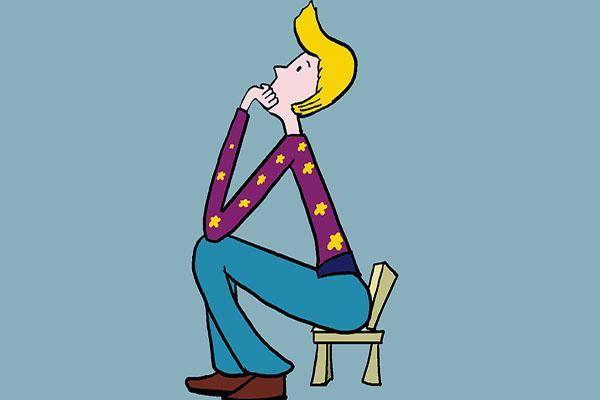It is well known that women go through menopause, and many women envy men for not having to experience menopause, but they are unaware that men also go through a similar phase, it’s just that men tend to be more composed, so the symptoms are not as prominent.
Male menopause generally occurs after the age of 50. To successfully navigate through this phase, men should prepare in advance and maintain proper health adjustments to prevent bodily issues and make the experience of menopause easier.
Prior to the onset of male menopause, the body undergoes changes. By noticing these changes early and making the necessary adjustments, men can easily pass through this period and minimize physical troubles.
What changes occur in the body during male menopause?
During menopause, the skin undergoes changes, appearing loose and prone to wrinkles, excess fat may accumulate around the belly making it appear more relaxed.
If a man notices increased wrinkles, dry skin, reduced elasticity, and excess belly fat, it’s important to pay attention as these signs indicate aging and the imminent arrival of menopause.
As men enter menopause, emotional changes may occur, where a person who was previously calm and collected suddenly becomes irritable, anxious, and suspicious, finding it difficult to trust others.
In addition, sleep disturbances may occur, often leading to insomnia due to unstable emotions stimulating the nerves and preventing the body from relaxing in a constant state.
Persistent negative moods can affect hormone secretion, leading to hormonal imbalances that may cause various health issues disrupting the nervous system and concentration abilities. It is crucial to take these changes seriously and quickly start taking care of the body.
Men going through menopause tend to experience joint pain, backaches, and leg weakness. Aging and decreased bodily functions cause a loss of calcium and mineral substances contributing to weakness in joints and bones, making them susceptible to problems.
Furthermore, hormonal imbalances in the body affect calcium absorption, resulting in weak bones, leading to issues like backaches, leg weakness, and joint pain.
How can men smoothly transition through menopause?
It’s essential to replenish calcium as men during menopause are prone to osteoporosis and other bone-related issues. To prevent such problems, increasing calcium intake is crucial as it strengthens bones.
You can supplement calcium through food or exercise to enhance calcium absorption. Foods like bone broth, dried shrimps, seaweed, legumes, and leafy greens are rich in calcium and recommended for a calcium-rich diet.
Combining dietary supplements with exercise or sun exposure promotes calcium absorption in the body. Setting aside around 30 minutes daily for exercise or sun exposure ensures adequate calcium levels in the body, maintaining strong bones for an easier transition through menopause.
In addition, quality sleep is vital as sleep disruptions during menopause can impact overall health. Healthy sleep habits, such as regular bedtime routines, foot soaks before bed, or drinking warm milk, can aid in improving sleep quality. Maintaining a calm state of mind before bed and avoiding intense activities, excessive screen time, or TV usage helps achieve better sleep quality, ensuring a smoother menopausal transition.


